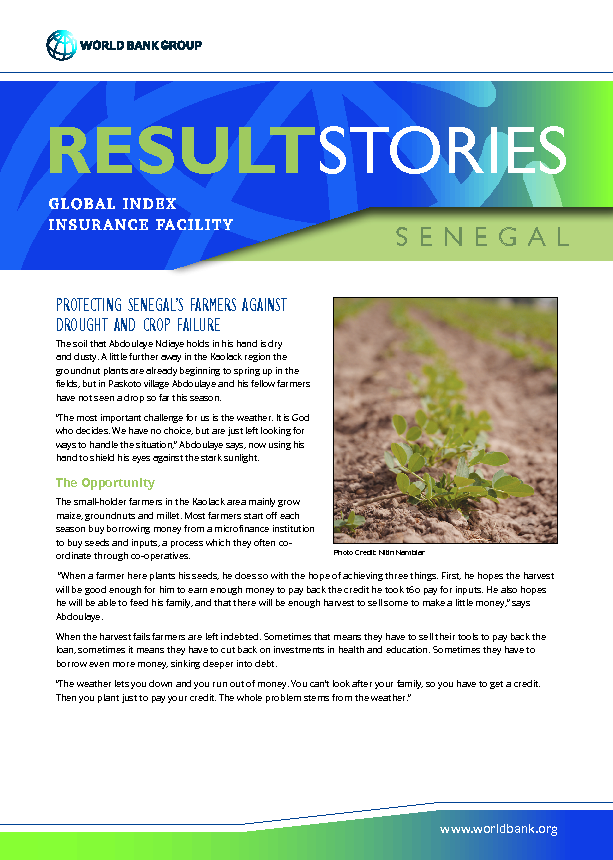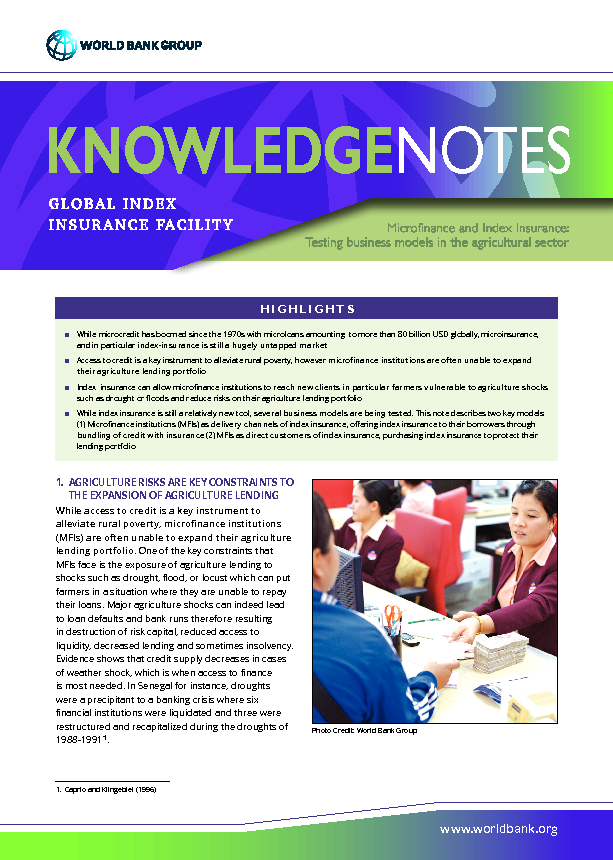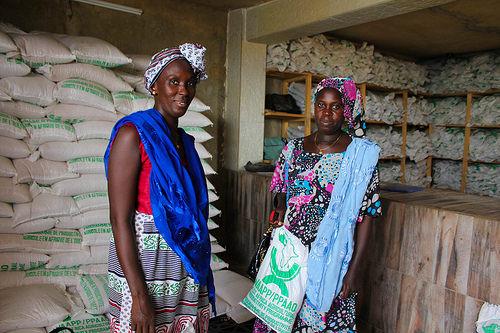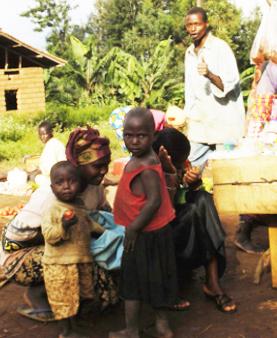Senegal



At the request of the Ministry of Finance of Senegal, a feasibility study was completed in 2009 to assess the potential of index insurance. This study recommended the development of weather-based index insurance for commercial farmers, and suggested a pilot for groundnut farmers in two departments – Nioro and Kaffrine. As a follow-up to these recommendations, CNAAS requested in 2011 financial and technical assistance from the World Bank in order to pilot-test index insurance for groundnut farmers. The objective of the pilot was 1) to test the operational and technical procedures of the weather
In 2011, at the request of CIMA and FANAF, a regional study on microinsurance was conducted with the technical assistance and financial support from the World Bank. This report showed that a new regional framework was required for microinsurance and agricultural index-based insurance, which had been absent, in the CIMA zone. The member countries are Benin, Burkina Faso, Cameroon, Central African Republic, Comoros, Chad, Cote d’Ivoire, Gabon, Guinea, Equatorial Guinea, Mali, Niger, Senegal, and Togo.

